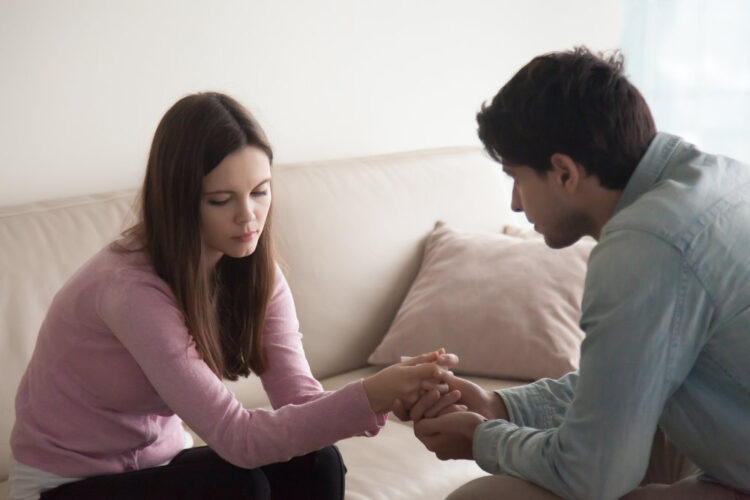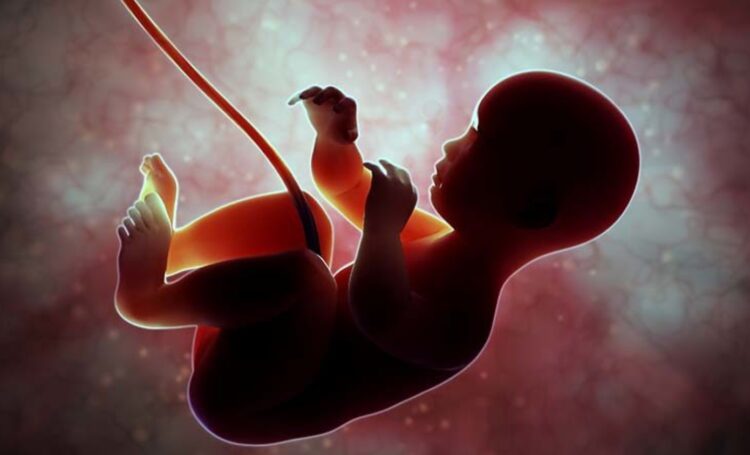
Abortion may have a significant impact on every kind of relationship. It’s not only about women’s relationship with her partner that can be affected, but also with the other members of the family, or her other children. Our friends from Aastra Women’s Center helped us summarise these psychological consequences of abortion.

The types of potential emotional and psychological side effects following an abortion are:
- Regret
- Anger
- Guilt
- Shame
- Sense of loneliness or isolation
- Loss of self-confidence
- Insomnia or nightmares
- Relationship issues
- Suicidal thoughts and feelings
- Eating disorders
- Depression
- Anxiety
The rate of breakups and relationship dissolution after abortion is from 40% to 75%, which is usually related to the breakdown of trust and intimacy. Many women can experience guilt, depression, and anger that is related to feelings of having been let down by the partner, which leads to communication problems and, in many cases, sexual dysfunction. If their partners manipulated or forced them to have an abortion, women typically tend to feel angry and betrayed, while men usually feel a loss of control and pride.

Psychological Damage
A woman that is experiencing emotional distress may attempt to blame her boyfriend or husband for the abortion. She may think that her partner didn’t provide sufficient support for continuing the pregnancy. Following the abortion, a woman might be unable to remain in a relationship in which she thinks that the man has abandoned her. The guilt that she feels can impact her ability to relate to her partner, which can lead to a complete breakdown of intimacy and communication.
Women can also feel betrayed because of being coerced by her partner to abort against her judgment. In that case, she can feel like that man has manipulated her. The damage of her self-perception can be immense, and life in this kind of relationship might be emotionally untenable.

Sexual Relations
In some cases, a woman who feels shame or anger can have problems with sexuality after abortion. Around 20% of women have a reduction in libido three months following the abortion. One of the most critical factors in the breakup of a relationship after the abortion is the disillusionment experienced by the woman. Women may still respond powerfully to men who they love, and who are entirely committed to the family. When a partner fails in these tasks, a woman can feel deserted, and she disengages emotionally.

Parents and Abortion
The most frequent image is a young teenager being taken to an abortion clinic by her concerned but controlling parents. The focus of concern is usually the young woman and her reactions to abortion. The impact that such a choice has on the fabric of family life should be considered much more than it is. When their parents aren’t informed about an abortion decision, and when preabortion counseling doesn’t address these issues as well as the relational context of the pregnancy, emotional traumatization is typically inevitable.
Most young women feel like they must deny any of the negative effects to preserve the belief that their parents did what was best for them. After it is over, the abortion is often never mentioned again, as if it had never happened. This strategy is cognitively incompatible with a healthy relationship.
But what about the parents who consider abortion as a morally unacceptable thing and who don’t want to provide support for their daughter during her abortion? Many commentators consider their failure to stand by and accept a decision to abort as a cause of women’s post-abortion distress.
The position of these kinds of parents may contribute to post-abortion distress, but so does the choice to abort that may have an overall effect on family relationships. Lack of support can occur before the adolescent becomes pregnant, because teenagers operate at the egocentric level of cognitive development, and they tend to see the world only in terms of themselves.

Who is more prone to emotional side effects
Anyone can experience an unexpected emotional or psychological side effects following an abortion. Most women report that having an abortion affected them more than they expected. With that in mind, some individuals are more susceptible to experiencing some type of emotional or psychological struggle. Those with a higher probability are:
- Individuals with previous emotional or psychological concerns
- Individuals who have been forced or persuaded to have an abortion
- Individuals whose religious beliefs conflict with abortion
- Individuals whose moral or ethnical views conflict with abortion
- Individuals who get an abortion in the later stages of pregnancy
- Individuals who don’t enjoy support from their partners regarding the abortion
- Women obtaining an abortion for genetic or fetal abnormalities

Recommendations for women considering an abortion
- Get help – The most important and maybe the most helpful thing women that are facing an unplanned pregnancy can do is to communicate with trained professionals. They can answer any questions and discuss individual circumstances.
- Don’t be isolated – Women experiencing unplanned pregnancy often tend to withdraw from others. It seems to them that it would be easier to keep the matter a secret and face the issue alone. No matter how difficult it may seem in the beginning, it is important to stay connected with family and friends who can support you, since too much isolation in this situation can lead to depression.
- Evaluate your circumstances – We have talked about women who are more prone to emotional side effects. Always discuss your situation with people that can help by giving you a different perspective and understanding.
- Avoid pressure – Many people often pressure us to do what they think is right disregarding the way we may feel about the issue. Whether you decide to be a parent, choose adoption, or have an abortion, you are the one who is going to have to live with the choice you made.
- Talk to people with similar experiences – If you know someone who has gone through an unplanned pregnancy or had an abortion, it is a smart thing to talk to them. Share your thoughts, fears, and expectations, since these people know what you are going through and can understand all your concerns.











